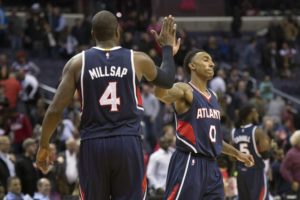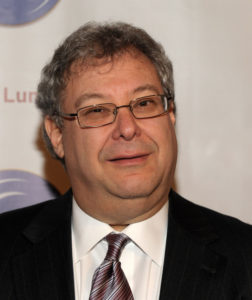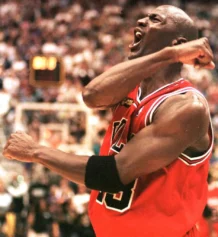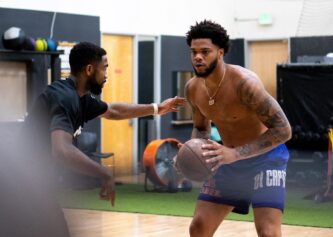
Koonin did not say the last part, but he did find it reprehensible that someone of Levenson’s position—head of a professional sports team that features Black players supported by mostly Black fans—would consider it good business to discard them and attempt to lure whites.
That’s where the racist part comes in. Cash is king and the only color that counts in business is green, as in money. How those common philosophies could not apply to a bottom-tier franchise was mind-blowing.
Further dumbfounding and confusing was the rhetoric from Black people who said they agreed with Levenson, that the move was to dismiss the African-American fans who supported the team because “business” calls for being inclusive.
Well, why is “inclusive” a viable option when it’s not including Black people? Further, anyone who thought it was a prudent notion that 40-year-old white men from the suburbs of Atlanta would make a season-long commitment to support the Hawks because there was more rock music played in Philips Arena and fewer Black cheerleaders and less Blacks at the bars and more whites participating in the promotions could not see past their own issues.
“Our bull’s-eye is Atlanta proper—African-Americans and millennials,” Koonin said in an extensive interview with ESPN. “There are 2 million millennials in the area. Our other audience is African-Americans, which are 59 percent of the city of Atlanta.”
Koonin should know. He was appointed the guy to right the mess Levenson and exiled general manager Danny Ferry (who called player Luol Deng a “liar and a cheat” because of his African heritage) created a few months ago. Koonin has studied the team closely, reviewed the drama and decided the plan to attract more whites in Atlanta was dumb.
“I know what doesn’t work,” Koonin said. And what’s that? “Trying to get the wealthy folk to buy season tickets when they’ve rejected the product.”
From ESPN personalities and successful people across the country, many of them Black, they claimed they “understood” or even backed Levenson’s idea of shunning Black support for recruiting whites.
Koonin seems to get it: “The 55-year-old (white) guy who’s going to drive an hour from (Atlanta suburb) Alpharetta into the city with three buddies to go to the Hawks game. . . He doesn’t exist,” he said. “And there is no music, no kiss cam, no cheerleaders, no shooting for a free car, no bobbleheads … nothing is going to change that.”
Sounds like the Hawks, at least with their current ownership, will dismiss the idea of trying to lure the white fan from the suburbs. This is smart—not because white fans are not worthy of being wooed; sure they are. But it’s bad business to overlook the Black fans who care about the Hawks.
The game plan all along should have been how to get more people who support the team (Blacks) to come to games, not to pursue a market that is far less interested.
All this, while interesting, could be inconsequential, depending on who purchases the team. Grant Hill, the former NBA star who works on NBA-TV, is reported to be a part of a group with ex-NBA reserve specialist Junior Bridgeman, that is said to be looking to buy the Hawks.
There are a host of other groups with Blacks as partners—including Chris Webber and Dominique Wilkins, among others—trying to join Michael Jordan as an African-American NBA owner.
According to CNBC, the Hawks’ selling price ranges from $700 million to $1 billion. . . remarkable considering the franchise’s history of mediocrity.
But Steve Ballmer paid $2 billion (way too much) to buy the Los Angeles Clippers, altering the scale and likely doubling the $425 million Forbes valued the Hawks.
“The Ballmer deal is going to increase the value of teams across the board, and the TV deal that was struck is going to start putting more money in the pockets of ownership,” Patrick Rishe, CEO of sports market research firm Sportsimpacts told CNBC.
So, the Hawks’ owners in general and Levenson in particular, will sell the team in relative disgrace over the totally out of whack emails. . . and make more money off the sale than they ever could have imagined? Considering why they’re selling the team, there seems something wrong with that.



